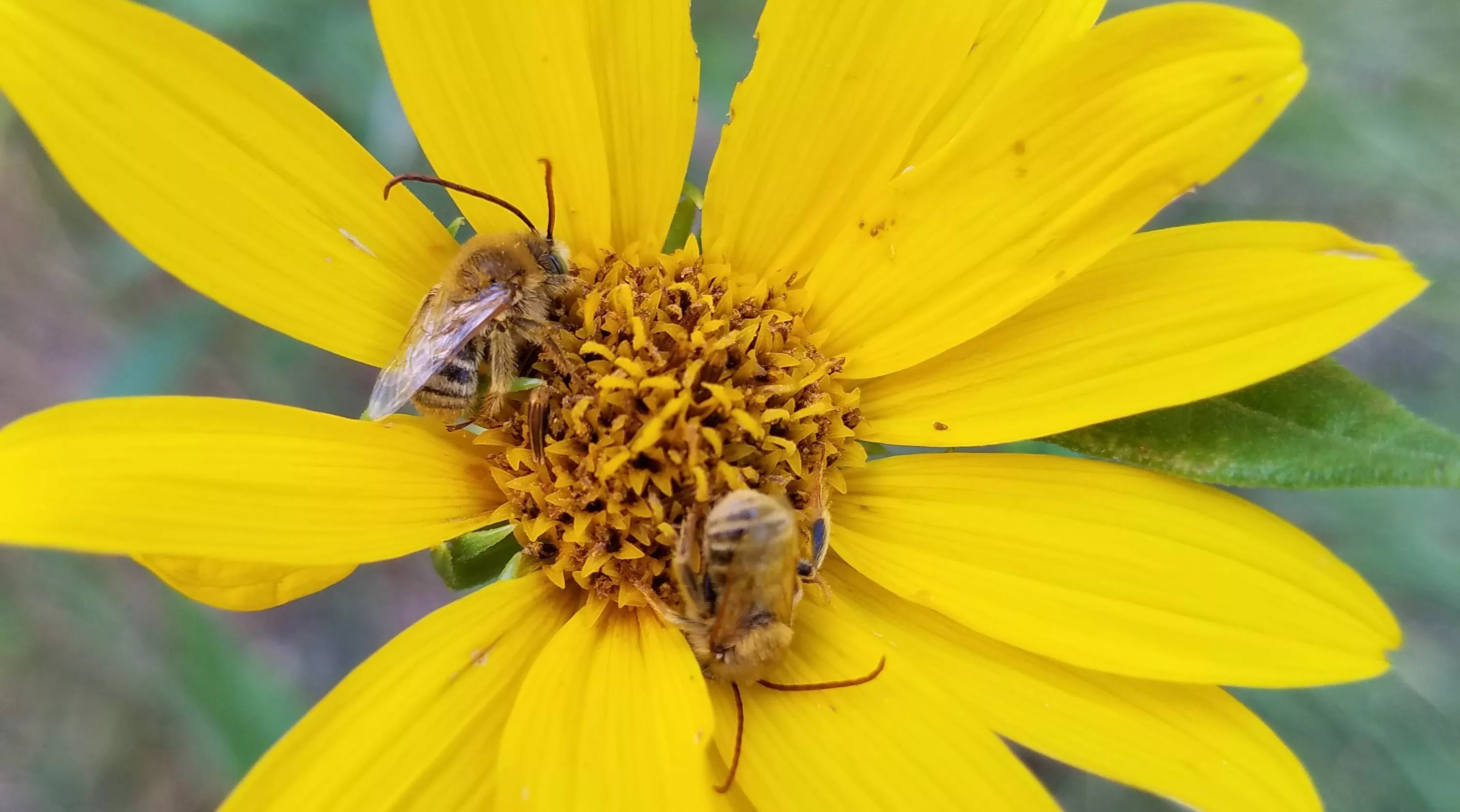
Courtesy of the Butterfly Pavilion

Audio By Carbonatix
Invertebrate lovers, it’s time to report to boot camp.
“There’s been an uptick in the community for really just an interest in this and wanting to support pollinators and support invertebrates through these really beautiful gardens. But it can be an intimidating process for some people, myself included,” says Ashley White, community habitats manager at the Butterfly Pavilion in Westminster. “We wanted to provide a way to have your hand held through this process.”
Starting on February 26 and lasting into September, the Butterfly Pavilion, a worldwide leader in invertebrates research, will hold a five-session Habitat Gardening Boot Camp focused on teaching participants how to start their own pollinator-friendly gardens.
“For us, one of the biggest things is that in order for our invertebrate populations to survive, they need to have the resources – and the correct way to do that is to provide the habitat,” White adds.
Pollinator-friendly gardens provide safe and welcoming habitats for pollinators, which are creatures that transfer pollen from one flowering plant to another, contributing to floral reproduction. In other words, the birds and the bees.
According to White, it’s now more important than ever to integrate pollinator-friendly gardens into Denver metro, since so much habitat has been lost. But pollinator-friendly gardens don’t have to be limited to wide expanses of open space.
“Folks’ yards and folks’ balconies and patios – those can really serve as those green spaces as well, and they can also serve as connectors to the bigger spaces and really improve the overall health of our area,” White says.
The Butterfly Pavilion is in the process of pollinating itself, with plans to build a new facility in Broomfield, starting with a groundbreaking in 2024. So far, the Pavilion has raised $25 million out of a needed $55 million for the project.
When it comes to actual pollinating, the boot-camp sessions will touch on the basics of habitat gardening, plant knowledge, design, site prep, planting and maintenance. Participants will also get a half-hour private consultation regarding habitat gardening. In addition, there will be a final debriefing session in September where participants will be able to share progress about their gardens.
“One of the biggest things is just having the right plant species – having species that are native to our area, meaning that they have this pre-existing relationship to Colorado, so they are well adapted to the soil and the changing temperatures and the lack of moisture, for example,” says White.
The program is open to anybody with an interest in making a space more habitat-friendly or pollinator-friendly, she adds. And for those who don’t necessarily have their own personal space for a garden, space at public libraries or outside churches could be options, too.
For Pavilion members, the boot camp costs $300; non-members pay $350.
Part of that fee will go toward gaining knowledge about the wide world of pollinators, the majority of which are invertebrates.
“A lot of people think of honeybees specifically when they think of pollinators,” says White before stating that butterflies, moths, bats, small mammals, hummingbirds and even flies are pollinators in Colorado.
“People don’t really think about flies as being terribly useful, but flies are actually incredible pollinators,” she notes.
To get your buzz on, visit the Butterfly Pavilion site for more boot camp information.